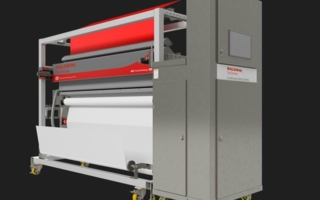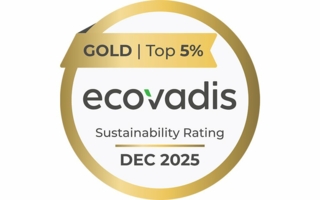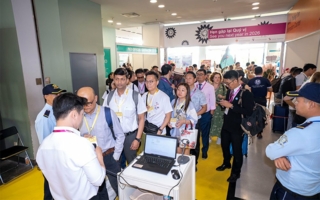26/07/2023 – VDMA
PFASs to be restricted throughout the EU
The EU's planned ban on the entire group of per- and polyfluoroalkyl substances (PFAS) would put many industrial processes at risk according to the German engineering federation, the Verband Deutscher Maschinen- und Anlagenbau (VDMA). PFAS stands for a group of several thousand individual chemicals. They are characterised by being very stable and water, dirt and grease repellent.
Textile manufacturing would be affected twice – by the lack of important chemicals for technical textile production and by the lack of essential textile machinery components. The latter would affect the whole supply chain from textile machinery manufacturers and their suppliers to the EU textile industry. Solid PFAS parts are widely used in textile machinery production, especially where extreme conditions prevail.
Verena Thies, Managing Shareholder Thies GmbH & Co. KG, explains: “Our textile dyeing machines are world leaders and set standards in efficiency and sustainability. They work under pressure at temperatures of up to 140 °C using highly acidic, highly basic and/or oxidative, or even reductive chemicals. This is precisely why PFAS is needed, for example, in seals and rings, flaps as well as valves for a long-lasting and high-quality machine concept – because there are no alternatives with qualitatively equivalent properties. In addition, PTFE semi-finished products enable a sliding and gentle contact with the textile fabric in ecologically important techniques in the transformation of textile wet finishing.”
Both PTFE and FKM are fluoropolymers (fluoroplastics and fluoroelastomers), a group within the broad PFAS spectrum of around 10,000 substances that would be banned for production, use, and sale in the EU. These are high-tech materials and, as so-called “polymers of low concern”, do not pose a threat to the environment, according to the OECD. In addition, these components are built into a machine and are replaced or disposed of properly. PFAS such as PTFE and FKM should be excluded from the ban, the VDMA argues in its position paper.
Dr. Sarah Brückner, Head of VDMA Environmental Affairs and Sustainability, notes that the PFAS groups are different and that Great Britain, where the substance groups are considered in a differentiated manner, should be taken as an example.
PFAS components are considered indispensable in textile drying machines (e.g., conveyor dryers, tumblers, and stenters) and damping machines. They are also used in fully automatic chemical dispensing systems and pressure vessels for thermochemical treatment of textile recycling material, heat recovery systems and wastewater treatment technology. This means that a lot of machines needed for sustainable textile production would be affected by the PFAS ban.
VDMA Textile Machinery urges its members affected by the planned restriction to participate in the consultation, which ends on September 25th, 2023.
For more information please see the postion paper published by the VDMA.




